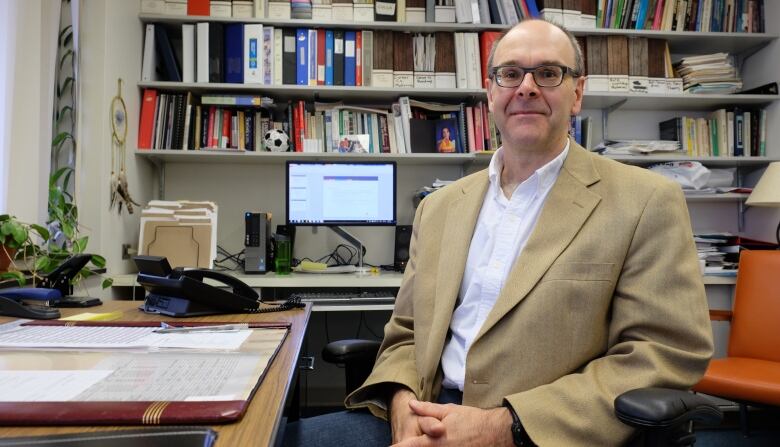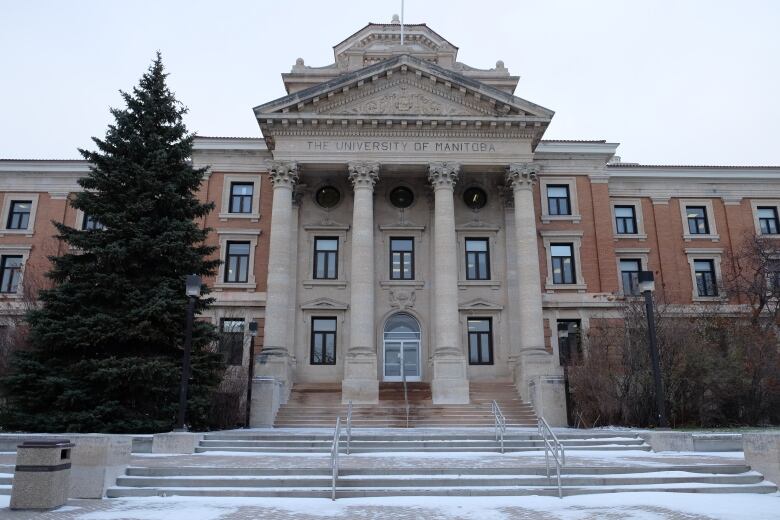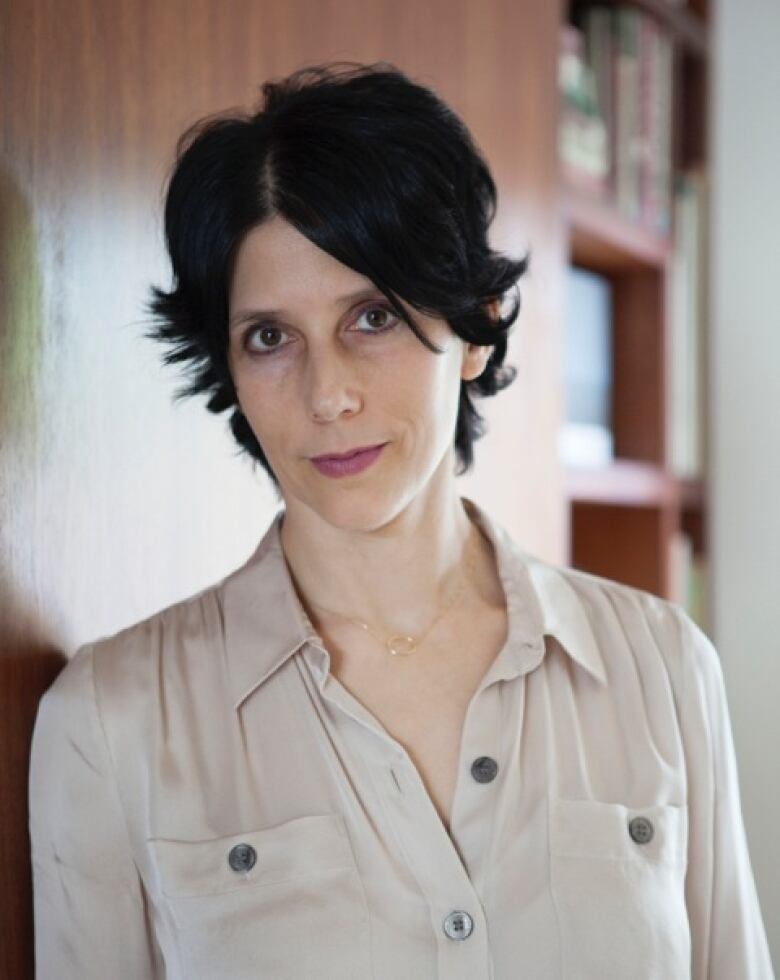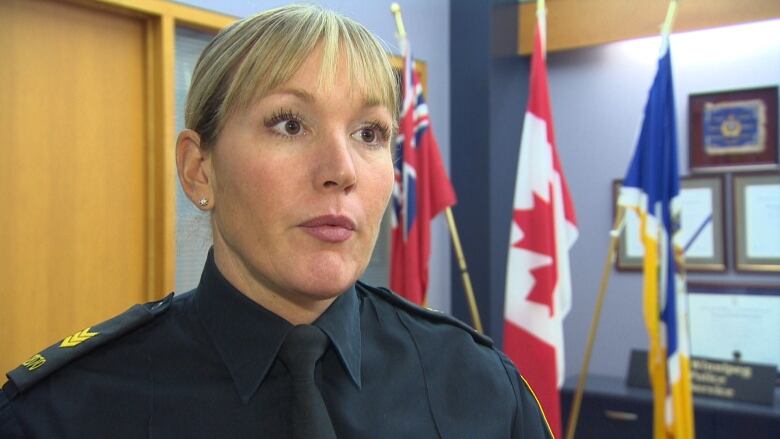Manitoba university pens how-to guide for helping sexual assault victims
University of Manitoba developing instructions for what to do if someone discloses a sexual assault
Thousands of women have tweeted over the last few weeks about the worst moments of their lives releasing into the public the often degrading, difficult details of their sexual assaults and rapes.
Theyre telling deeply personal narratives in 140 characters or less on Twitterandseeking comfort in other survivors, many of whom are strangers on the internet.
But what if someone came to you with their story? What if someone trusted you enough to tell you about the time they were attacked? What if they told you the uncomfortable, scary details of what happened to them and asked for help? Would you know what to say?

I think the topic is scary for folks, said Parrington. Often, actually, people are misinformed about what kinds of things would be helpful to do.
In Winnipeg, about 30 people at the University of Manitoba are trying to change that. The group is working on a sexual assault response protocol to help everyday people respond.
David Ness, head of student counselling at the university, is part of the group and sayssometimes people can unintentionally do more harm than good.
If someones experienced a sexual assault, you dont want to start questioning them about what happened and going into detail right away, he said. Instead, you want to be listening non-judgmentally, giving support and just being there for them and asking them what they need.
Parrington agrees.
When you start asking, 'Why?'whether its unintentional or intentionalit has the feeling of leaving the victim feeling blamed. Why didnt you do this? suggests there is something they shouldve done different, said Parrington.The victim isnt responsible for being sexually assaulted there is a person that sexually assaulted them.
Know what resources are out there
Parrington said counsellors at Klinic in Winnipeg help normalize and validate the feelings of those who have been sexually assaulted.
You might say to me, I shouldnt have been drinking, and I might say something like, I can understand that you feel like that. People often feel somewhat responsible after a sexual assault, but you didnt do anything to cause this, said Parrington.

The person really needs to talk more about how are they feeling right now, do they require some medical attention? What are they going to sort through in the next few days? Are they feeling able to go to work? Do they have kids they need to worry about picking up? said Parrington.
Winnipeg police Det.-Sgt. Natalie Aitken said some basic questions about safety also need to be asked. Do they need medical attention? Are they safe from further violence?
If someone has been a victim of a sexual assault, reporting it to police is something we would encourage, said Aitken.
She saidtheres an important five-day window after an assault thats critical for collecting evidence.
We would encourage people to immediately go to [the hospital] even if they havent decided to report it to police, so we have that evidence, so that evidence is collected and they can take some time to determine if [filing a report or pursuing charges is] something that they want to do, said Aitken.
The University of Manitoba's guide should be finished by September 2015.
'I made 2 phone calls to my parents'
Karyn Freedman, author of the bookOne Hour in Paris: A True Story of Rape and Recovery, was attacked and raped in France's capital when she was 22 years old. The first people she told were police officers. Then, her parents.
I made two phone calls to my parents, she said. Those first phone calls with them were just, you know, I was weeping. Those were tough calls.
Youd think about it and wonder how theyre going to react and what youre going to say and if your voice is going to shake when you say it.- Karyn Freedman, author of
Police acted quickly, tracked down her rapist, and he was eventually convicted. But aside from her parents and a few close friends, Freedman didnt tell anyone for 10 years.
I made up some story about being mugged in Europe and thats why Id come home early, she said.
Years later, Freedman was doing well academically and professionally finishing a masters degree but she was still deeply traumatized.

After counselling and intensive therapy, she began to open up about it.
Youd anticipate telling someone, and the anticipation would sit in you, and youd think about it and wonder how theyre going to react and what youre going to say and if your voice is going to shake when you say it ... I would wonder how I would get through it, said Freedman.
Freedman, who is now a professor at Ontario's University of Guelph, has spoken publicly about how important it is to talk about sexual assault.
There are all these conditions in society that make it very difficult for a woman to come forward, she said. Theyve also just had their whole world turned upside down, you know their relationship with their own body will be changed. They often experience tremendous shame.
An isolating experience
Freedman said because of that the experience is incredibly isolating.
The facts tell us, and what weve seen in the last couple weeks, is that almost everyone you know has had this experience, she said.
Freedman said the international attention sexual assault victims have receivedafter allegations against former CBC Radio host Jian Ghomeshisurfaced has created an opportunity for some women to come forward and feel supported.
- Jian Ghomeshi allegedly choked, beat N.B. woman with belt
- Toronto police investigating Jian Ghomeshi allegations
For Freedman, it's now easy to talk about what happened to her, but for many women, it remains difficult to determine who is a safe person to tell.
Heres what the experts recommend (in short)
- Make sure the victim is safe.
- Suggest resources to help, such as a hospital, crisis clinic or police.
- Ask how you can help (Do they need someone to pick up their kids? Can they go to work? Do they feel safe?)
- Dont ask a lot of questions about the details of what happened.
- Listen. Avoid the urge to give advice.
- Believe them.
- Dont ask why questions that could make someone feel responsible for the attack.
- Reinforce that what happened to them is not their fault.
What police say you should do
Det.-Sgt. Natalie Aitken of the Winnipeg Police Service says first and foremost: Do the best that [you] can to provide them with some resources. Take them to somewhere that they need to go. Ensure that they are safe If its a matter that they feel this person is in a dangerous situation, notify any police or authorities that [you] can.

Help them understand their options. "Reporting it to police is something we would encourage, absolutely without a doubt. If it has just occurred, we would encourage them to go to [the nearest hospital].
You do not have to decide to report your assault to have evidence collected. In Winnipeg, theres a five-day window to have evidence collected and you can take much more time after that to determine if you want to report (exceptions include attacks on children and domestic violence).
Finally, offer to go with them wherever they need to go.
If they dont want to have police officers there, having someone a support, a friend. If they dont want any friends or family there thats understandable too, they can utilize those volunteers [from a crisis centre] who will come out, said Aitken.













_(720p).jpg)


 OFFICIAL HD MUSIC VIDEO.jpg)
.jpg)



























































































